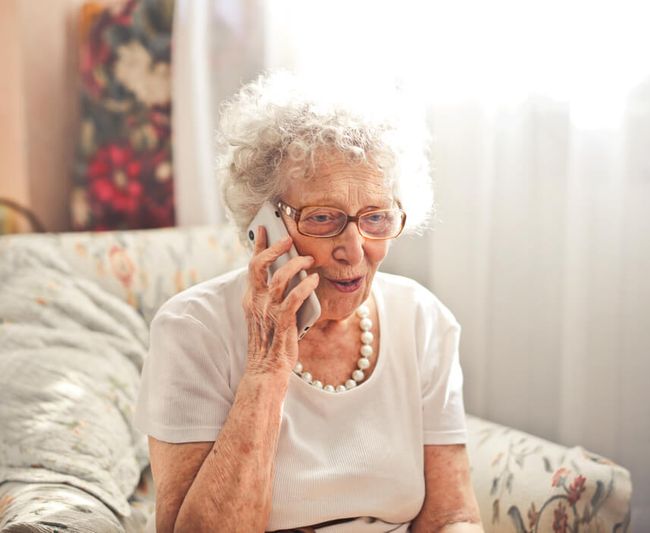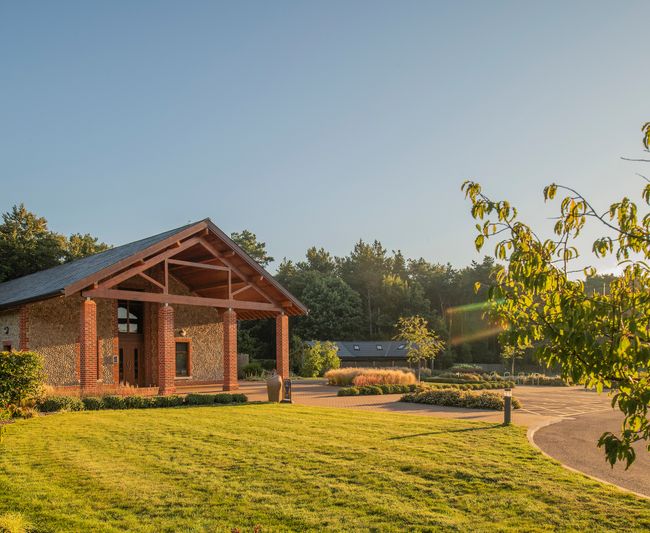When someone dies in a hospital, you may be notified beforehand, so you can be with the deceased as they pass away and spend some time with them. Though being aware that the death of a loved one is imminent doesn’t take away the impact of the loss, there are still some important things worth knowing before it happens.
To help you through this difficult time, we’ve put together a simple step-by-step guide, and checklist, on what to do when someone dies in a hospital.
If your loved one dies in a hospital, the hospital staff will be on hand to provide you with practical and emotional support. They will be there to talk you through the next immediate steps.
To give you an idea of what to expect, here's how the process typically works from the time of death to the funeral.
When someone passes away in a hospital, hospital staff will work with you (or the documented next of kin) to confirm the identity of the deceased. They will ask for permission for a post-mortem examination at the hospital if the cause of death requires confirmation. However, a post-mortem examination can be carried out without consent. This process ensures accuracy and closure, whilst respecting the dignity of the deceased.
The body will be temporarily stored in the hospital’s mortuary until arrangements for collection have been made with a funeral director.
Any belongings your loved one had with them in hospital at the time of death will be kept safe by the hospital staff, until the estate administrator arranges for them to be collected, ready to distribute to the beneficiaries.
Following the confirmation of death, a doctor at the hospital will issue a medical certificate outlining the cause of death.
If the circumstances of the death require investigation by the coroner, a death certificate will not be issued until the coroner's inquiries are concluded, and the death cannot be officially registered until then.
If the deceased expressed wishes to donate organs or tissues, or if the family decides to donate, hospital staff will guide you through the process. Organ donation can be an incredibly generous gift that saves lives.
Hospitals have dedicated teams to facilitate this process with care and respect for the deceased and their family's wishes.
In the UK, it's a legal requirement to register a death within five days (eight days in Scotland). Typically, you'll visit the nearest register office to where the deceased passed away: find your closest register office.
You'll need the medical certificate, details about the deceased (such as their full name and date and place of birth), and information about their spouse or civil partner if applicable. The registrar will issue a death certificate, which you'll need for various purposes, including arranging the funeral and handling the deceased's estate.
At this point, you might still be uncertain about funeral arrangements. Reaching out to a funeral provider can help you understand your options.
It's important to note that you're not committing to a specific provider for the funeral arrangements at this stage. However, making this decision early can alleviate financial concerns and emotional stress. It prevents the need for your loved one to be transported to multiple locations, offering continuity and respect during this transition.
Once you’ve obtained a medical certificate and registered the death, you can begin making funeral arrangements. You can choose a funeral director to assist you or make arrangements independently.
At Distinct Cremations, we can help with logistical aspects, such as:
If you prefer a traditional funeral service, you can hire a funeral director. Please note that using a funeral director for a traditional funeral tends to be more expensive than opting for a simpler service. Be sure to discuss costs and services in detail to understand all expenses involved.
We are open 24/7 and will make all the arrangements from taking the deceased into our care to completing all the paperwork. Our customer service specialists will liaise with you to make arrangements for the cremation and keep you updated.
Call us to arrange on 01543 212 000
Arrange a funeralIf a person dies in a hospital setting, the hospital mortuary will look after the body until arrangements have been made to collect the body. Arranging a funeral during this challenging time can feel overwhelming to say the least, but putting the wheels in motion early on after death can help to ease emotional and logistical stress.
You can choose to either have a traditional funeral or more modern type of funeral arrangement like a direct cremation.
Traditional funerals include a service attended by mourners and a funeral procession with a coffin and hearse. Whether the service is held at a church or other place of commemoration, the service is typically open to as many people as the location can accommodate.
Traditional funerals are more expensive, with the cost of a funeral averaging at £4,285* in the UK in 2024. However, like most things, the cost varies depending on the region.
* The average cost of a funeral in 2024 (SunLife Cost of Dying Report 2025, sunlife.co.uk/funeral-costs)
At a direct cremation, the deceased is respectfully cremated shortly after their passing, without a formal funeral service.
This straightforward process typically involved the transportation, mortuary care and cremation of the deceased. Unlike traditional funerals, there is no viewing or ceremony prior to the cremation. Instead, the focus remains solely on the peaceful transition of the departed.
Direct cremation provides families with flexibility and freedom in how they choose to remember and commemorate their loved one. It allows them to forgo the complexities and expenses associated with a traditional funeral, while still ensuring that their loved one is treated with care and respect throughout the process. Following the cremation, families have the option to hold a memorial service or celebration of life at a later time and in a manner that feels most meaningful to them.
Direct cremation remains the most affordable funeral option on the market, with the average cost standing at £1,597.** At Distinct Cremations, our direct cremation service starts from £1,299.
** The average cost of direct cremation in the UK (SunLife Cost of Dying Report 2025, sunlife.co.uk/funeral-costs)
A direct cremation offers a sense of closure and allows you and your loved ones to gather and honour the memory of the departed in a way that reflects their unique life and legacy. At Distinct Cremations, we provide an affordable and compassionate option for honouring a loved one's wishes with simplicity, dignity and respect.
Here's a brief overview of what's included in our direct cremation service.
With Distinct Cremations, you can also pay for a direct cremation plan in one single payment of £1,899 or over 12 months. Acceptance is guaranteed if you are over 18 and there are no medical questions or upper age limits. If you are aged between 50 & 74, you can also pay over 5 or 10 years for a lower monthly payment.
Celebrate a life without the restrictions of a funeral. Direct cremation is a simple, dignified and affordable option with no formal service or attendees present.
With our Funeral Service, you have the choice of a 30 or a 60 minute service. This can be family-led or led by a professional celebrant. The choice is yours.
Arranging a funeral with Distinct Cremations is straightforward and our customer service specialists are available 24/7 for any of your questions.

When you are ready, you can call us any time of the day, 365 days a year, and we will collect your loved one from the place of death, bringing them into our care.
Call On 01543 212 000
Whilst your loved one is cared for in our high quality mortuary facilities, our customer service specialists will contact you to book the cremation and complete all the paperwork.

We will support with the funeral service arrangements or tell you the cremation date, if you wish to know. Your loved one's ashes can then be scattered in our garden of remembrance or personally hand returned to you.
Learn more about the process of organising a funeral and how to make paying for a funeral as affordable as possible. Or, if you need to arrange a funeral straight away, give our compassionate team a call on 01543 211997.
When someone passes away in a hospital, staff will verify their identity and seek permission for any necessary post-mortem examination. The body is then temporarily placed in the hospital's mortuary until arrangements are made with a funeral director. The deceased's belongings are kept safe by the hospital until collected by the estate administrator for distribution to beneficiaries.
After confirming the death, a hospital doctor will issue a vital medical certificate detailing the cause, essential for legal procedures. Enclosed in a sealed envelope, it's addressed to the local register office of births, deaths, and marriages. You can usually retrieve this certificate from the hospital's bereavement office or the deceased's GP, along with guidance on death registration procedures.